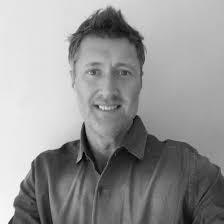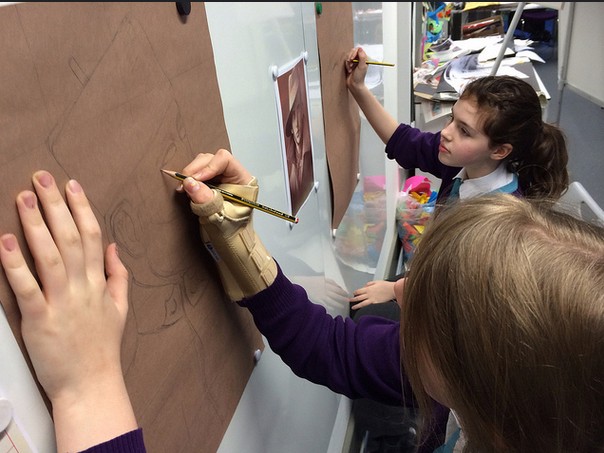
https://www.ashoka.org/en/story/empowering-teachers-empower-young-people
Living and thriving in a new world —
Fueled by explosions in population growth, urbanisation and technological advancement — our world today is defined by accelerating volatility, complexity and hyper-connectivity — forces which make our tangle of social, economic and environmental problems everyone’s problems — and increasingly difficult to solve.
Traditional approaches to addressing our problems — centralised decision-making — and rigid hierarchies in which a few command the many — are becoming increasingly obsolete. We can no longer afford to be compliant — or simply follow the rules — or do what we have always done. For humans to thrive together in the modern world, we need people to become self-empowered (to live for our collective wellbeing).[1]
A person who becomes self-empowered in this way uses her inner powers (her innate capacities) again and again to solve problems — to create opportunities — and to empower others. And with the most enlightened organisations now empowering their customers and staff through models of mass participation, decentralisation and do-it-yourself — she is in great demand.
Being and becoming self-empowered
But being self-empowered like this — being a changemaker — is not just about working life. It’s about the way you live your life — your attitude — your actions — and the decisions you make from moment to moment. Being self-empowered — changemaking — requires a sophisticated understanding of the world — an understanding that your wellbeing is inextricably entwined with everyone’s wellbeing. And it means taking responsibility — taking the lead — and collaborating with others to make life better for yourself and family and friends and community and humanity and the planet.
Being self-empowered is a way of being. It involves being empathic, thoughtful and creative — being curious, resilient and effective. Becoming self-empowered, then, is a process of finding, using and developing a complex array of changemaking powers.[2] Within the limits imposed by our genes, the extent to which we become self-empowered is determined to a very large extent by the experiences we have throughout childhood and adolescence.
Influencing the experience of growing up
But although they are essential to employment and economic development — to social and environmental wellbeing — and to personal and collective wellbeing — nurturing deep changemaking powers is rarely in our minds when we are influencing the experience of young people. Commercial and cultural influences often pull in opposite directions — and despite often good intentions, parenting is typically ill-informed and improvised.
And for most, the experience of school reflects limited conceptions of the human mind, the human being and human potential. It usually reveals a highly individualistic and narrowly economic orientation. And it reinforces compliance and outdated hierarchical power structures.
While many children and adolescents are benefitting hugely from experiences — inside and outside of school — that are explicitly intended to help them become self-empowered, it is a very small minority who benefit. And for those who do, their experiences are usually isolated and sporadic.
Building new learning ecosystems
If we want the new world to become our better world, then we need to give every young person access to coherent experiences — in and out of school. Experiences that are woven and scaffolded throughout their childhood and adolescence — and in which adults and young people are consciously helping each other become self-empowered.
In other words, we need to build new learning ecosystems — involving young people, parents, teachers, out-of-school educators, educational leaders, policy-makers, media people and cultural influencers working together. To support these learning ecosystems, we need self-empowering curricula, assessments and evaluations — new university admissions and employer hiring practices — mechanisms for stimulating innovation, applying research and sharing good practice — and the intelligent application of technology and money.
Empowering teachers and educators
Teachers and other out-of-school educators are instrumental to building these new learning ecosystems insofar as they can:
- help young people become self-empowered by way of their direct and immediate influence over the experience of young people
- influence the culture of their schools and organisations to self-empower young people and colleagues
- lead systems change beyond their schools and organisations — by influencing other educators, education leaders and parents.
But teachers and educators must be trained and supported if they are to take on — and succeed in — these demanding roles. They must be self-empowered to self-empower others — an idea that is in direct opposition to what many regard as a systematic dis-empowerment of teachers sweeping the world — and a major challenge where teacher shortages are chronic. Against this backdrop, we believe we need to:
- improve the status of teachers and teaching
- give teachers ownership of their own professional standards
- enable teachers to lead pedagogical innovation, spread good practice and collaborate
- reinvent initial teacher training and professional development
- equip teachers and educators to lead systems change
To make these changes, we need pioneering teachers and educators to come together as change leaders — to form collaborative teams — and to execute strategically-focused projects. And to lay the foundations upon which these strategic projects can have massive impact, we need to build a global community of education professionals who are fully committed to self-empowering educators — for self-empowering young people.
_____________
[1] Self-empowerment is used here as an umbrella term for a number of closely-related ideas including self-agency, self-determination, self-efficacy, self-authorship, and so on.
[2] Changemaking powers is used as an umbrella term to denote the things that are often called skills, competencies, capabilities, capacities, dispositions, strengths, qualities, etc.
About Ross: Ross joined Ashoka in November 2014. Ross has founded and grown more than 20 businesses around the world. Over the past 8 years, he has focused his energy on building a ground-breaking education programme that aims to empower and incline young people to be changemakers – to make a better world.The ‘Better World’ programme aims to develop a sophisticated understanding of what quality of life actually is - and a deep knowledge of our inner powers that most determine our quality of life.The programme is currently live with 500,000 children in Zimbabwe and Tanzania, and is now being extended to Ghana, the UK and Mexico. This grew out of earlier projects that Ross conceived and led for Pearson (under the banner of Education for Economic and Social Development), which involved ministries, employers and educators evaluating and improving the effectiveness of education systems, institutions and programmes around the world.













Add new comment